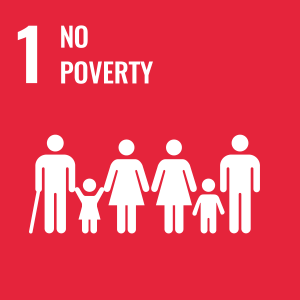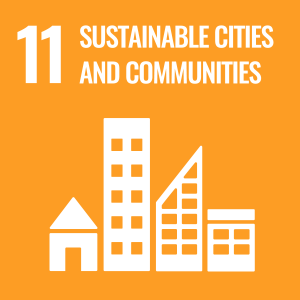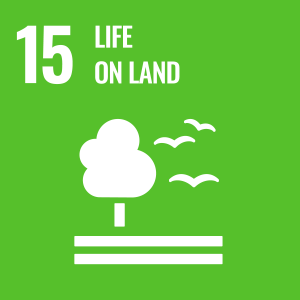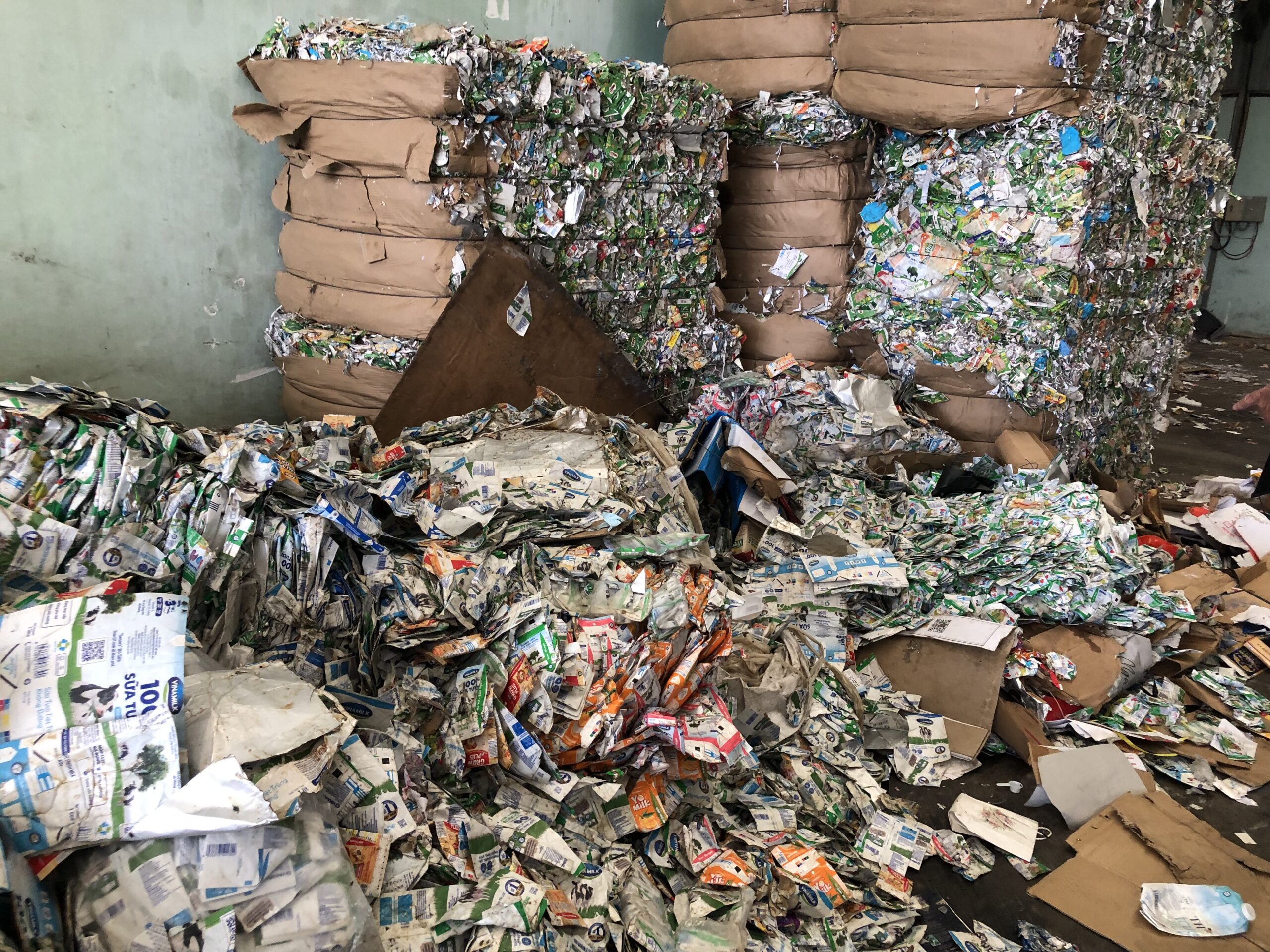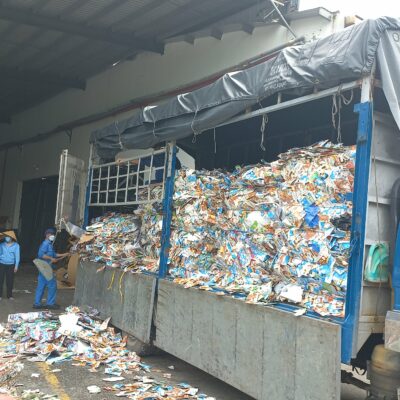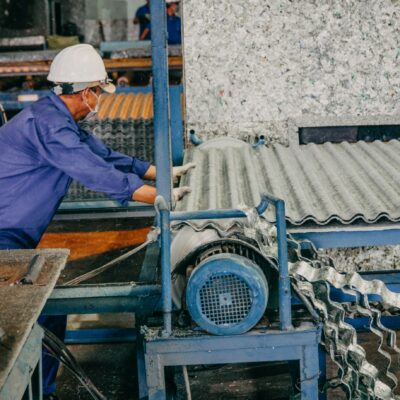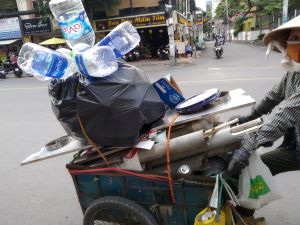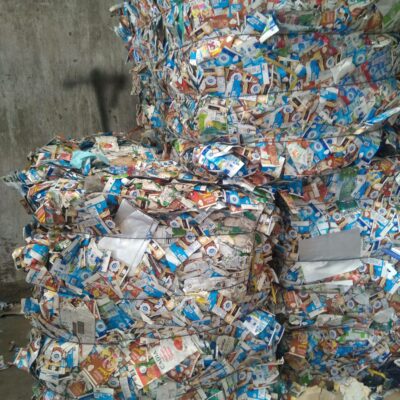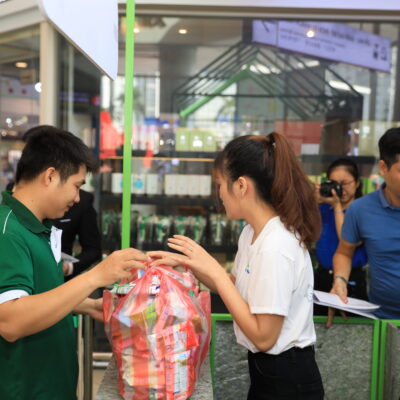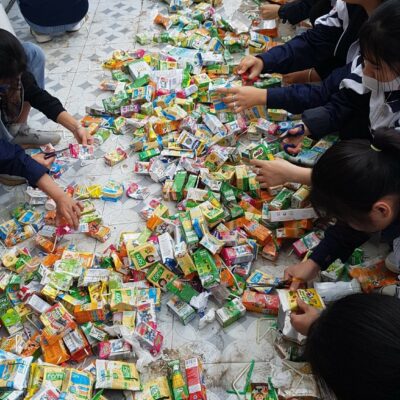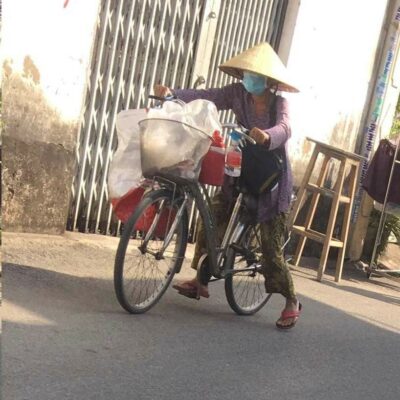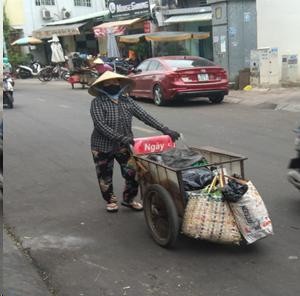Carton Recycling Investment Programme
Often deemed hard to recycle, beverage cartons were the focus of this short pilot Circular Action Programme for Tetra Pak in Vietnam which aimed to recycle 3000 tonnes of cartons recovered from the environment involving around 200 informal waste collectors.
Funders
- Tetra Pak, Vietnam
- Packaging Recycling Organisation Vietnam (PRO Vietnam)
About the project
Delivered by BVRio group company Circular Action, this pilot project for Tetra Pak in Vietnam took place in Ho Chi Minh City from March 2022, and for the first time, the recycling activities were run with the cooperation of beverage and food manufacturers in the PRO Vietnam alliance.
The project followed on from a feasibility study BVRio conducted for Tetra Pak in 2020 looking at strategies for the collection and recycling of used beverage cartons in both Vietnam and India. The study found that informal waste pickers are crucial to carton collection programmes, and that a project design that neglects informal collectors could potentially destroy their jobs. The study also found that if there is no incentive for waste pickers to collect cartons, then they won’t collect them. The standard practice was to stimulate the collection of cartons by subsidising purchases at the recycler and aggregators. This didn’t work because the large buyers (recyclers & aggregators) would not share the subsidy with waste pickers.
With Circular Action’s mobile app, KOLEKT, developed with waste pickers in Indonesia, Circular Action designed this pilot Circular Action Programme (CAP) to manage the recovery and recycling of used beverage cartons in Ho Chi Minh City, Vietnam, using a “Bottom Up” approach, subsidising waste pickers, rather than recyclers.
The programme started by paying larger waste collection centres an incentive fee for all tonnes of Tetra Pak Cartons sold to paper recycler Dong Tien Paper, to be recycled into brown paper and into chipboard or corrugated roofing. The large collection centres (or waste aggregators) receiving a performance based payment per Kg sold, passed on the bonus to waste pickers in order to secure supply. Tetra Pak cartons are usually not collected at all, and so this new recycling scheme was an opportunity to provide vital additional income for the waste pickers.
Changing the approach – Collecting from the collectors
In order to increase collection rates, in December 2022 a new approach was adopted and the first of an expected fleet of 10 vehicles was acquired by the project. The vehicles tour Ho Chi Minh City picking up the cartons from the waste pickers at designated sites, meaning the waste pickers no longer need to deliver the cartons themselves to the aggregator.
The vehicles each increased the potential daily collection capacity from an average of 150 kg to 837 kgs per day.
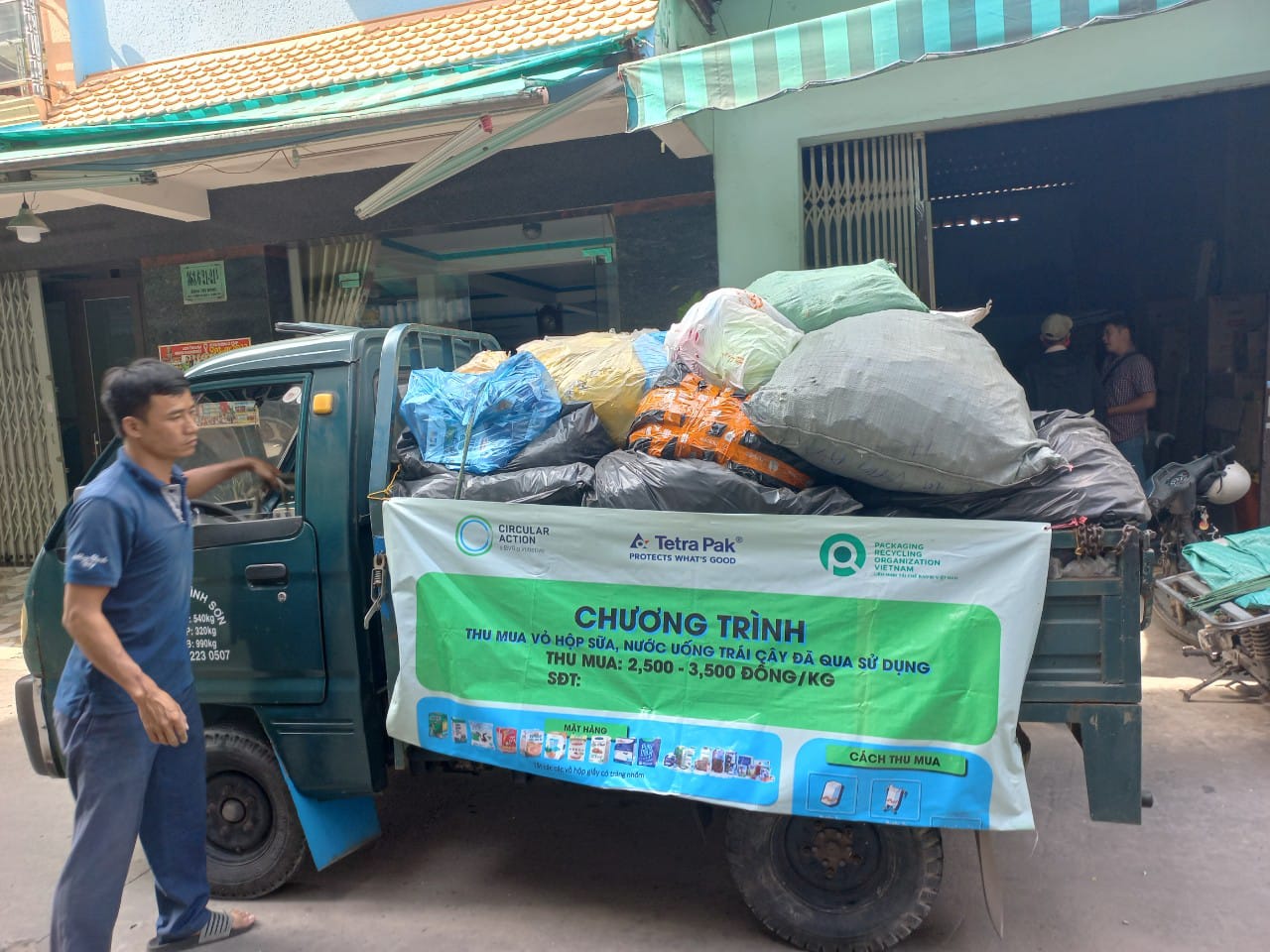
“Promoting the collection of used beverage cartons for recycling has always been at the core of Tetra Pak’s sustainable development. By doing this, we aim to realise our promise to protect what’s good, including protecting food, protecting people and protecting the planet.”
Mr. Eliseo Barcas, Managing Director of Tetra Pak Vietnam.
Impact (over 10 months)
280
waste pickers collecting cartons part-time and earning additional income
459 tonnes
of used beverage cartons recycled
20%
increase in earnings per week for the waste pickers
15%
additional income for aggregators
Legacy
The project helped Tetra Pak develop a bottom up approach to incentivise waste pickers, and the Circular Action team in Vietnam is continuing to work with them. For the long term, this project planted the seed with Tetra Pak to develop an alternative recycling strategy, shifting the recycling of cartons away from paper to wood plastic composite (WPC). WPC would allow 100% of all carton materials to be recycled, while making a higher value end product.
The KOLEKT app has also been rolled out for use successfully in Brazil and Mozambique.

Other projects using the KOLEKT APP
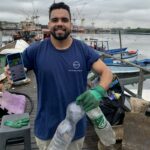
Fishing For Litter
Providing social and environmental benefit, the ‘fishing for litter’ initiative funds fishing communities to remove waste from fishing grounds and coastlines using cutting-edge technology mixed with traditional methods.
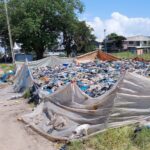
Digital Waste Africa
A study and pilot project to establish if a digital waste management solution could improve waste collection and recycling in Southern Africa, starting with Angola and Mozambique.
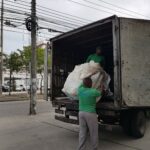
Supporting ‘cooperate to recycle’ in Rio de Janeiro
BVRio is supporting the waste cooperative, ‘Coopama’, to implement an investment of $4 million Brazilian Reais to collect and sort recyclable solid waste from multiple facilities owned by the project’s funder.
SDG Alignment
